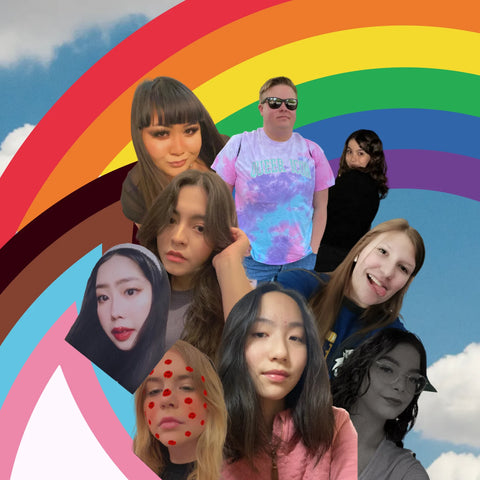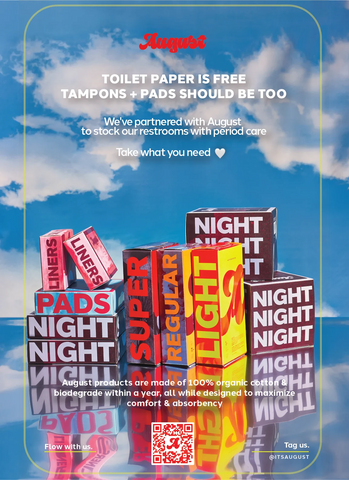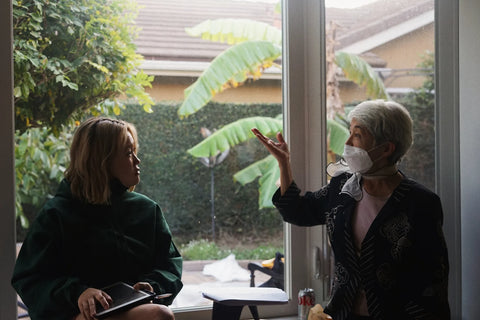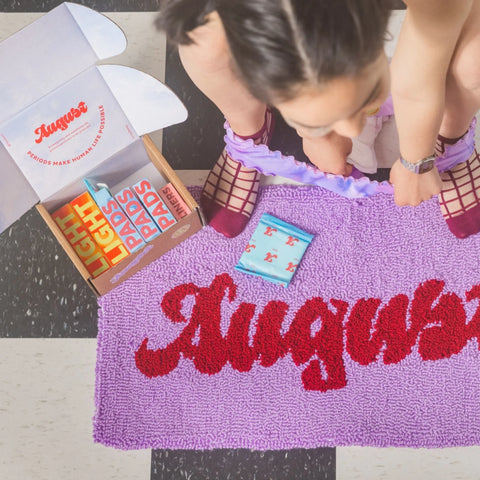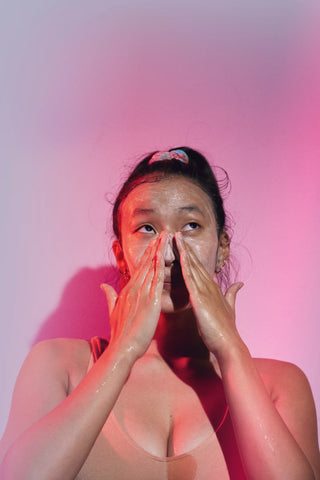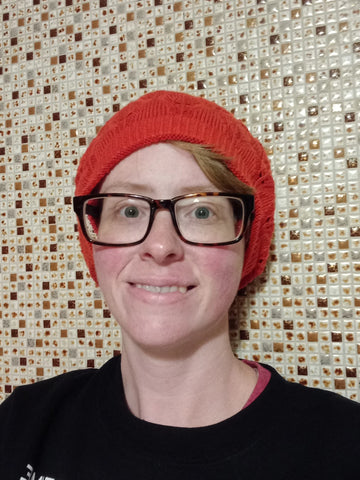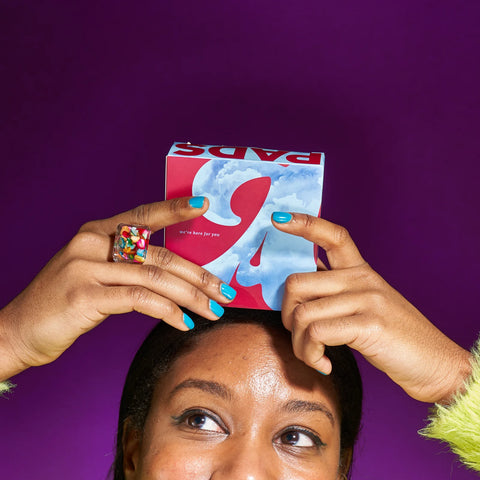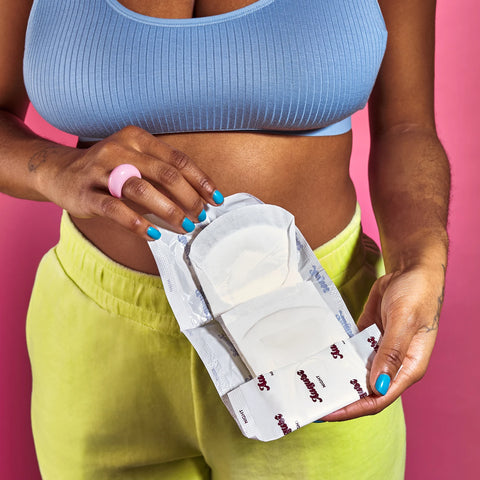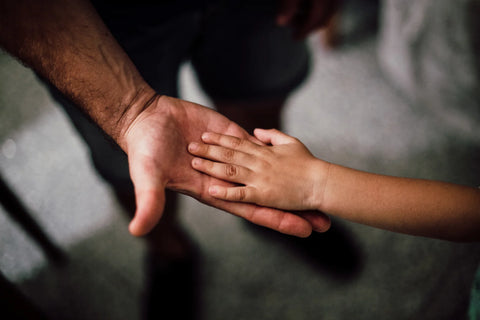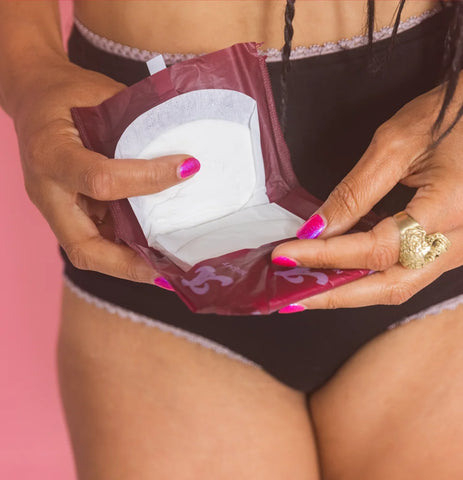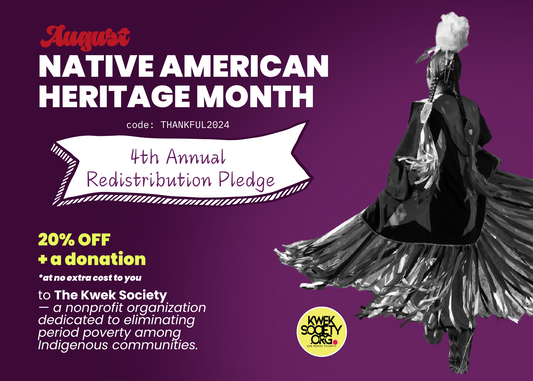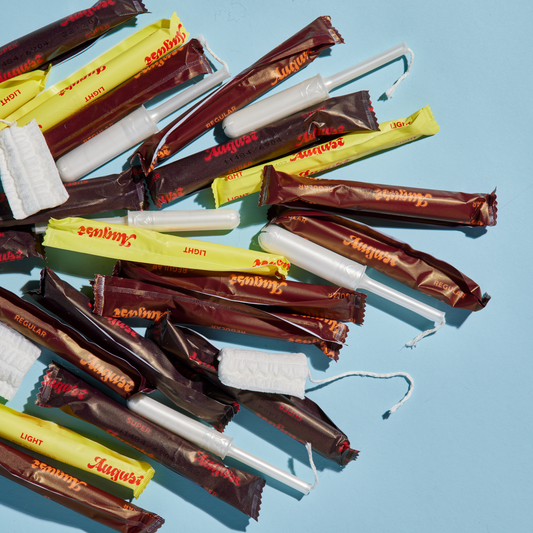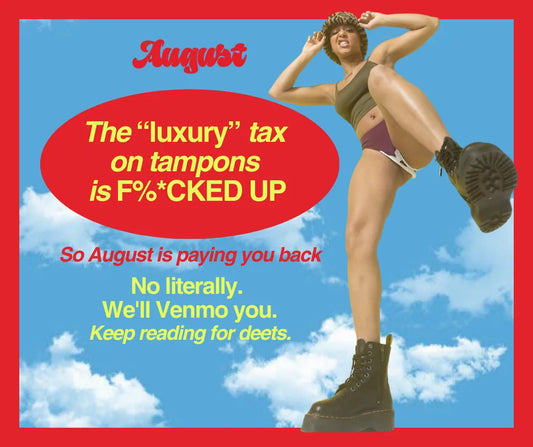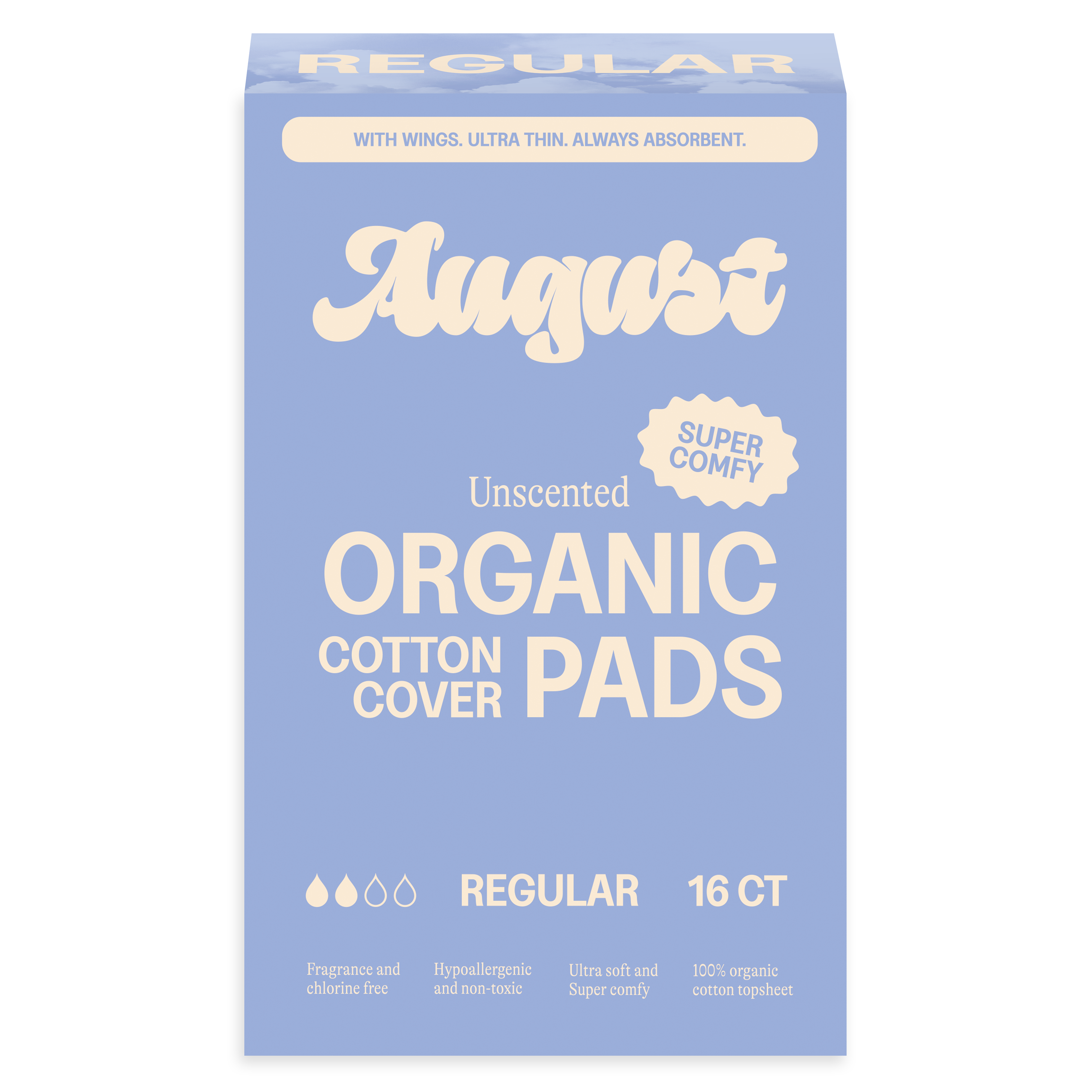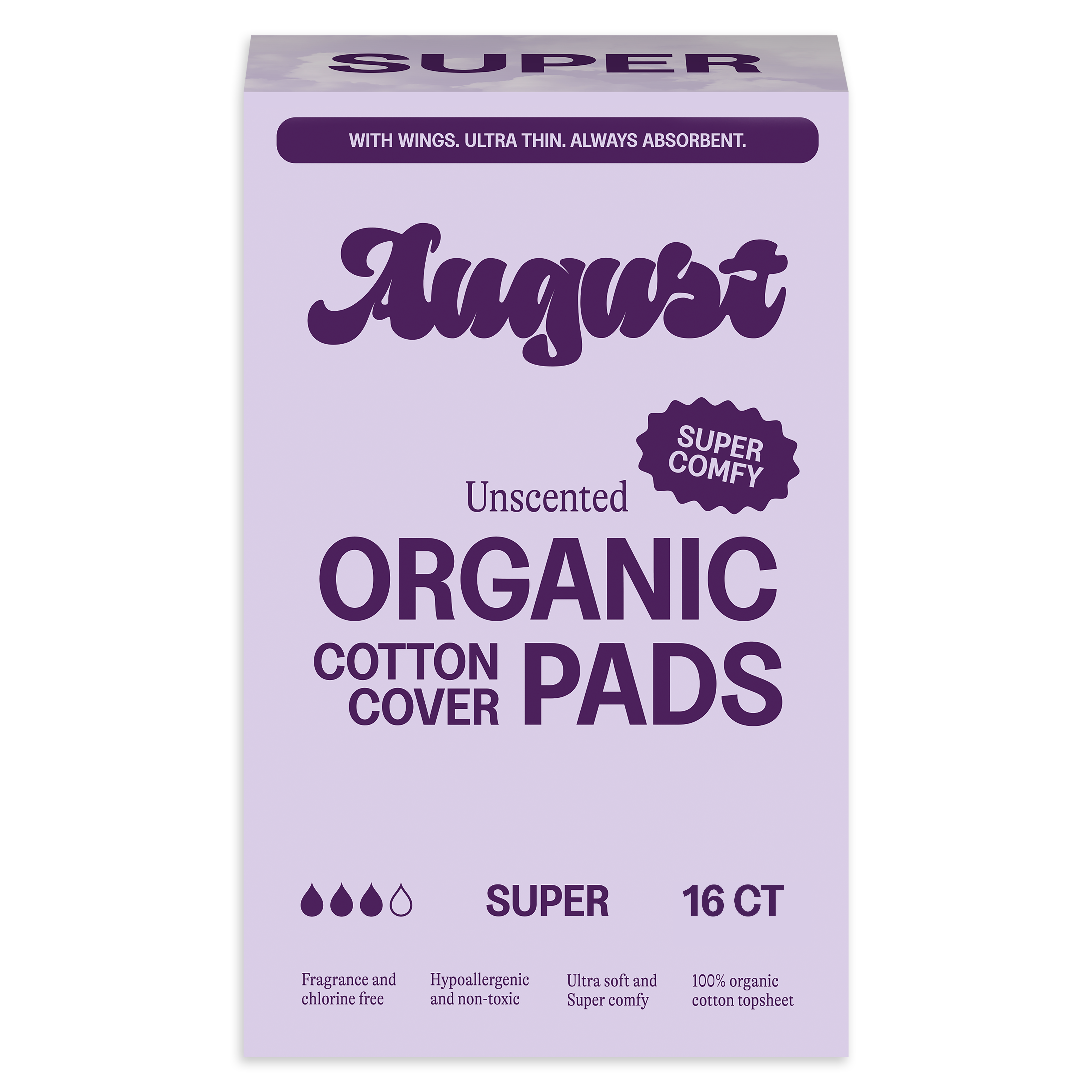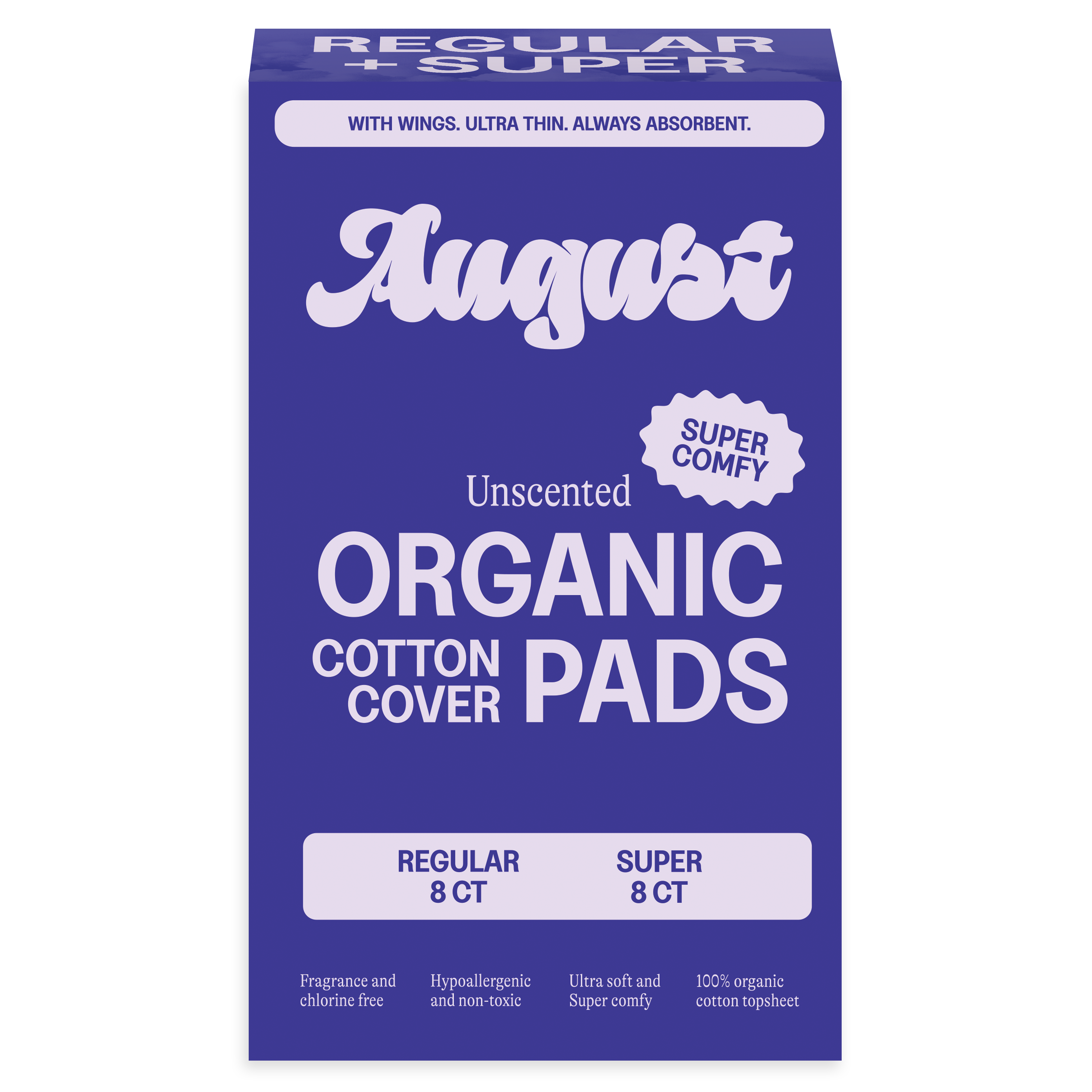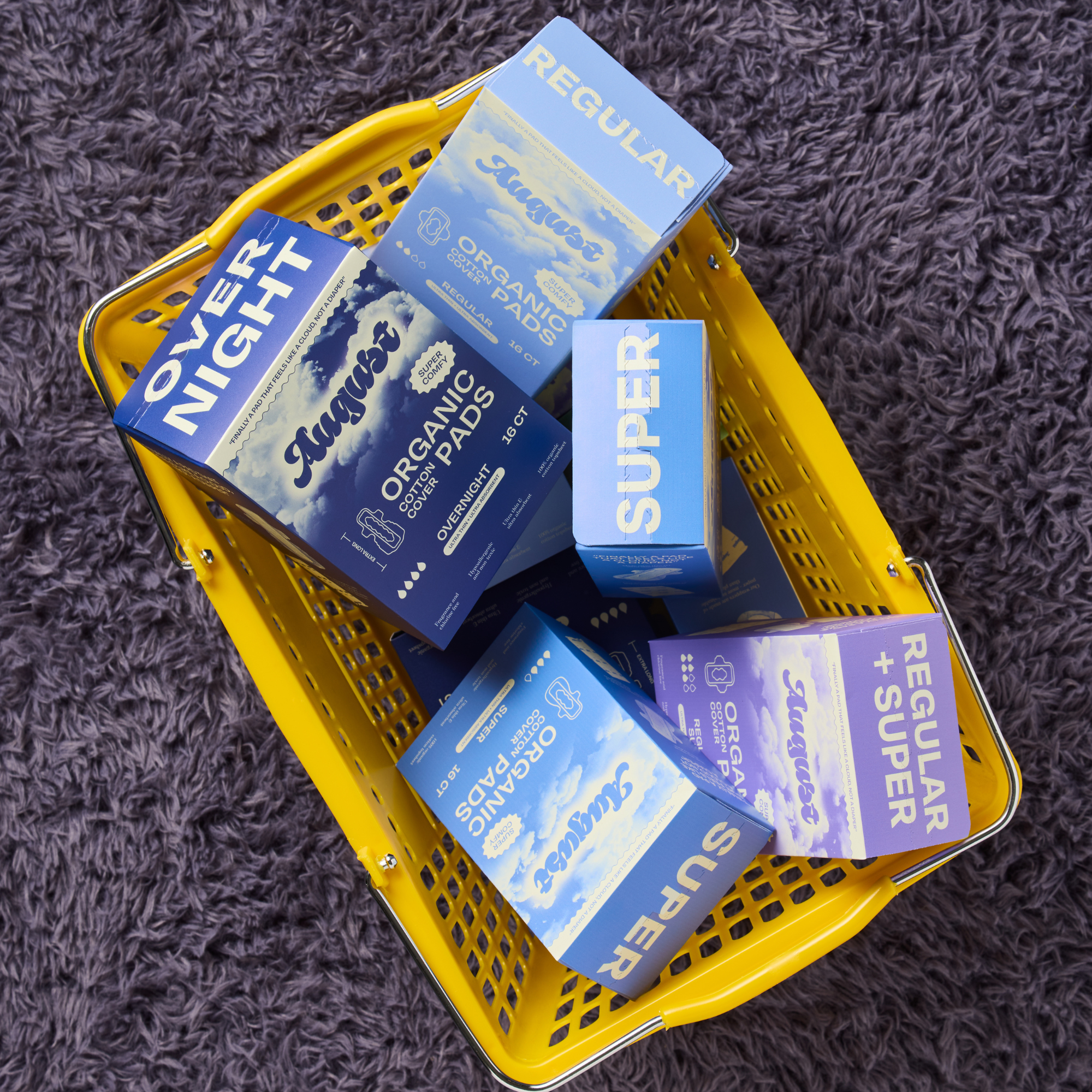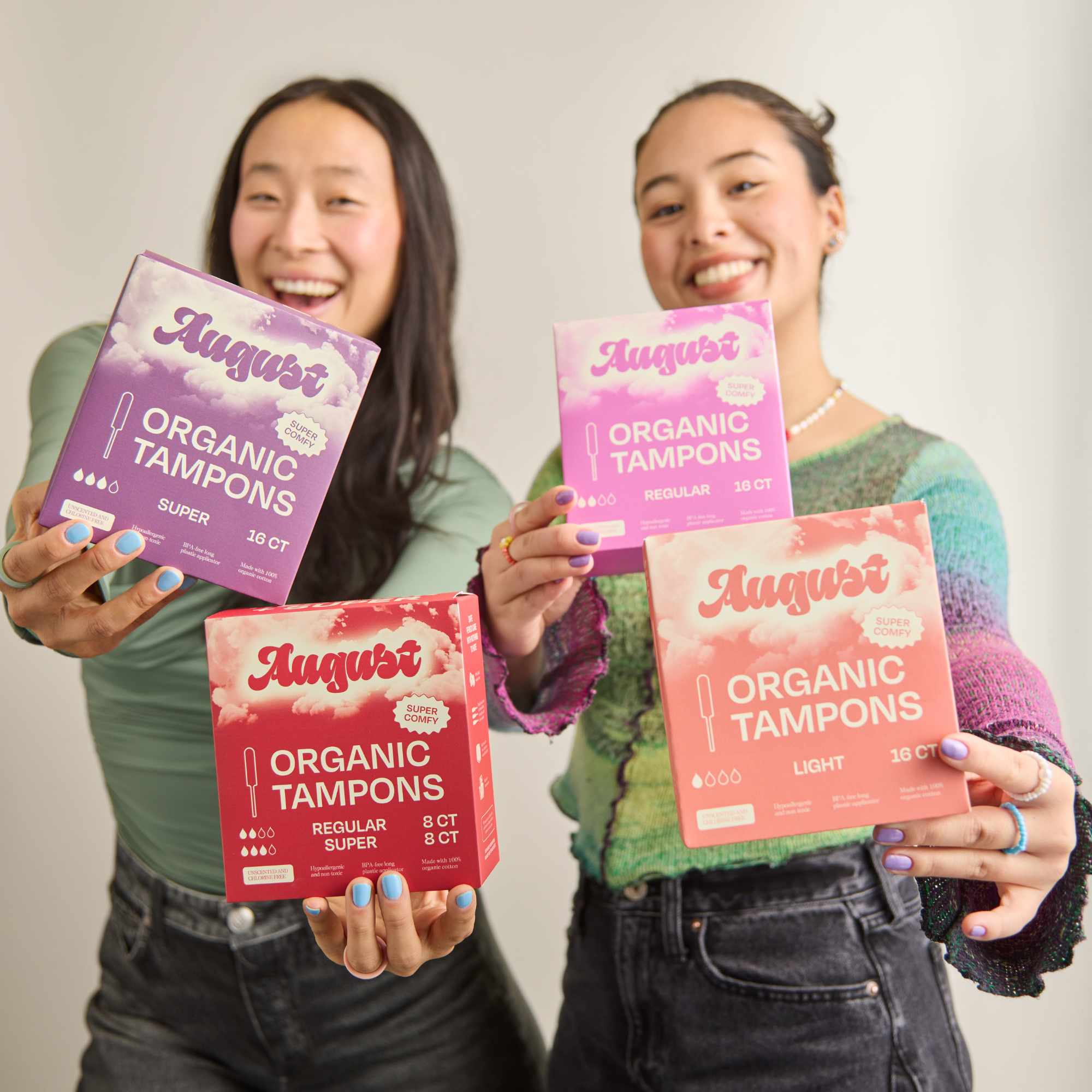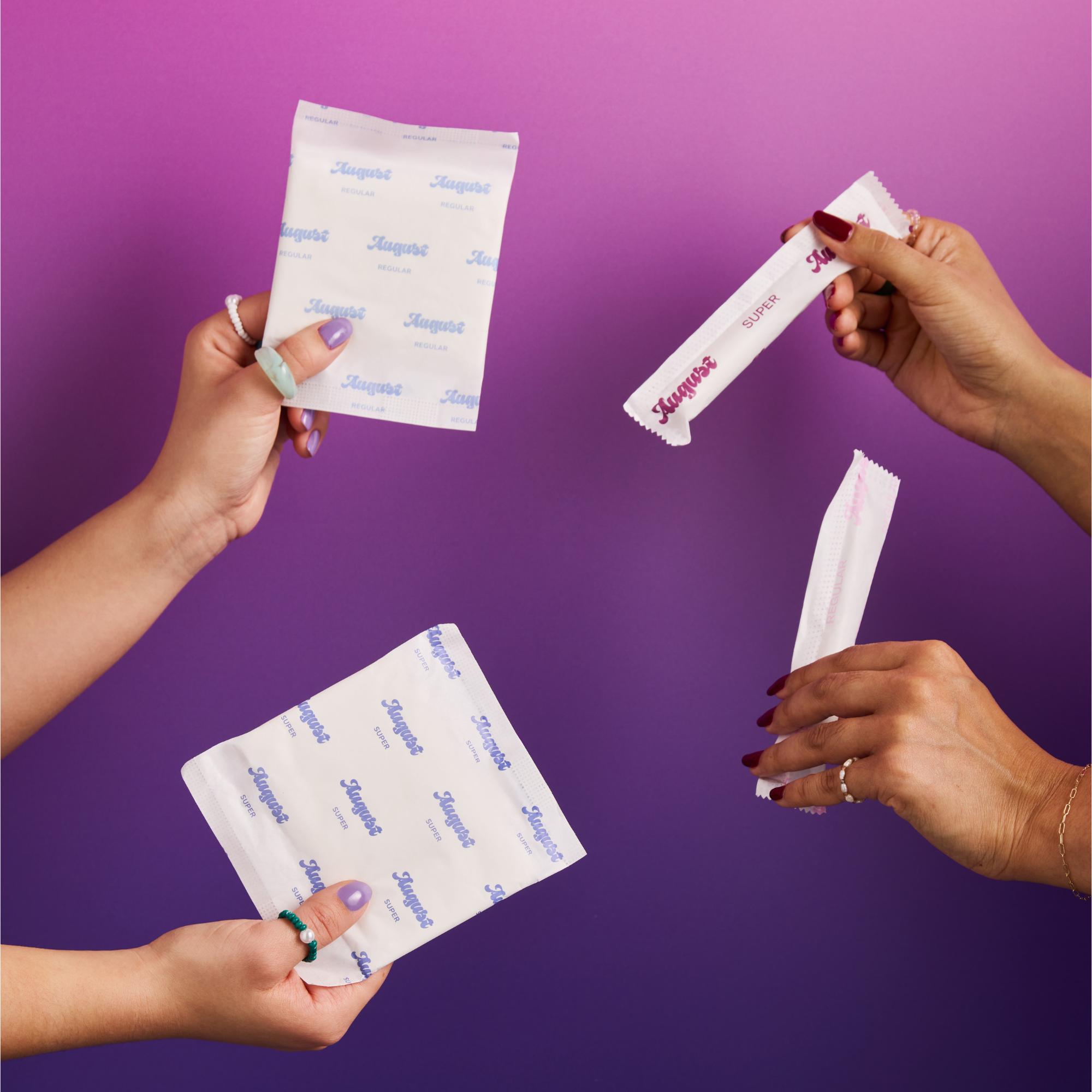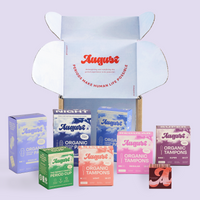Team August x AAPI Heritage Month
August is so excited to celebrate Asian American Pacific Islander Heritage Month as an Asian-founded company! We asked 3 Team August members to share their perspectives on how although the period experience is universal, there are slight cultural differences that distinguish their stories.
Elena Gadekar (she/her), Customer Care Associate

My name is Elena! I grew up in the Bay Area (CA) before moving to NYC for college. My Mom was born in Hong Kong and came to the US when she was 3 years old, along with her Mom, Dad, and 6 siblings. My dad was born in India and came to the US for college. They met at work and the rest is history! When they got married, they had a Western ceremony, an Indian ceremony, and a Chinese banquet all in one day!
Growing up, I think they were really aware of making sure my brother and I were culturally in touch with both our Chinese and Indian sides. We grew up celebrating both Chinese New Year and Diwali, we would attend Indian weddings, and set up our house based on Feng Shui principles – I couldn't be more grateful. I know my unique cultural background has definitely shaped me into the person I am today.
Thinking about it now, I realize that I've never discussed periods with my older relatives, which I'll definitely put on my to-do list now! I am grateful to my Mom though. Before I even got my period, she took me to a "Mom and me" puberty class (definitely embarrassing at the time). I later got my first period in 9th grade at my ballet studio! I told my Mom right away and she bought me pads. However, I quickly learned that pads and leotards are not best friends.
Even though my Mom never regularly used tampons herself and was a little cautious of me using them, she agreed that tampons might be the better product for me! I really appreciate that she trusted my judgment! A universal experience for many ballerinas is leaking onto your tights and trust me when I say that has happened plenty of times to me :'( Performing on my period was also always anxiety-inducing! Hehe
I feel proud of my cultural heritage. Growing up in a multicultural household has allowed me to appreciate other cultures both in my daily life and when I travel! The stereotype of Chinese and Indian cultures is that they really pride themselves in education. While education was definitely a focus of my upbringing, my parents also focused on our happiness and cultural competence. A fun story is that I have a Chinese name, 林颖欣, and when my Mom was giving me my Chinese name she had the option to give me a name that 1) had two characters that meant "intelligence" or 2) had one character that meant "intelligence" and the other character that meant "happiness." She chose the latter for me – because why be smart if you're not happy. Sappy, but I love the sentiment.
Claudia Ovejero Pham (she/her), Community Director

I'm Claudia Mai. I run Community here at August. While I'm not Asian-American specifically, I am half Vietnamese and currently live in North America after growing up internationally!
I spent a few years growing up in my home country of Vietnam – it's actually where I got my first period too (good times haha). I feel so grateful that my mother was fairly open and I got to learn about menstruation and reproduction early on. While the taboo still existed, periods were never something we hid in our house.
Vietnamese culture can be more conservative at times, especially with topics like menstruation. While it's not uncommon to bring it up with other menstruators, it's not something that is spoken about publicly at all. The product culture was very much pad-focused – it was the first and only period product I used for my first menstruating years and was the most widely available. Even when visiting my cousins or aunts asking for period products was basically synonymous with asking for a pad. While my mom used tampons, it's not something I discovered until later on in life and it wasn't really something socially common or promoted.
Oddly enough, there weren't many euphemisms when periods were spoken about. We said menstruation (“hành kinh” in Vietnamese), although perhaps this was just in my experience. I never learned of any other words to say period, however there were times were we didn't want to say menstruating, we would as if someone had "it" which insinuated being on your period.
I am so proud of my history and how much we have overcome as a country; I carry that strength with me everyday. I think Southeast Asian cultures are so bold and beautiful. Vietnamese people, and women particularly, are so strong and wise. I feel so lucky to have this heritage.
I hope to see more open conversation on periods and perhaps be able to see more about how menstruation exists in our history, mythology and how it interacts with culture. I think Turning Red (while periods were not the focus) was a really big moment and I hope we can continue down that path of more representation and period chat in popular culture!
Nadya Okamoto (she/her), CEO

I'm half Japanese and half Taiwanese. I didn't always feel super comfy with being Asian since I was teased so much as a kid for the shape of my eyes and even about the food I brought to school for lunch. But it's been a journey, and I've never felt more proud and even excited to be Asian-American.
One of the more common questions that I get is whether or not I feel there is an added stigma when talking about periods or mental health for me as an Asian-American person. And I think that there is some truth to that because, in some ways, there has been less progress in Japanese and Chinese culture around destigmatizing such topics. When I've traveled around the country or even internationally talking about menstrual health and my entrepreneurial journey, I often find myself in closer community with young Asian-American women who heard my story and felt drawn to it because of the stigma they felt in their own upbringing around such topics. Even in talking to my Chinese grandmother, who I am no longer in contact with, this was a really new topic for her because she didn't even grow up with access to period products nor was she surrounded by people who are open about it.
I'm still figuring out what it means to be Asian-American, but it's been powerful for me to realize that this identity is one created out of political solidarity with other marginalized communities. I think that it gives my identity a lot of strong meaning especially at this political moment. There are so many different ethnicities that are encapsulated in this label of Asian-American, which I think can be complicated, but can also provide us with an opportunity to transcend differences and create a deeper community. I hope that in the future of Asian-American sociology, our community can be one that pushes the boundary even further on what it looks like to have open conversations about things like our bodies and mental health.
The final question that these 3 Team August members were asked was: Why do you think having an Asian-American owned period care company is important, and overdue? Here’s what they had to say:
Elena: I'm really proud to be a part of the August team! As a Gen-Z company we often talk about empowering young menstruators to openly talk about their periods and to no longer feel the shame that many people associate with periods. In the same vein, I think it's important to open up space for cross-generational conversations, especially within the AAPI community. I would have never even thought about talking about my period with my Asian grandparents before working at August. It's a shared experience that's just not talked about and I'm glad that August is a part of the change :)
Claudia: I think it's SO important and overdue. It feels empowering. It completely changes the narrative around periods and means so much for younger menstruators especially. It's a critical time for young Asian menstruators to feel empowered, supported and represented (in the menstrual space and in entrepreneurship). It's been a long time coming. Asian folks have been through a lot, in North America, the diaspora and in their home continent. Asian-American owned period care changes the conversation from so many angles.
Nadya: I think with any sort of company, it is important for the end-user to be represented at the upper levels of that company. When we talk about representative democracy, or meaningful representation, it means that whichever community is affected by the work should be truly represented at all levels of decision-making. So naturally, as a company that is supporting people with periods regardless of gender, or race, it is important that we have a team of diverse menstruators. Especially in the last couple years of having a lot of conversations around the rise and anti-Asian hate crime, I think that I do take my role really seriously as a public facing Asian-American woman who has a platform to talk openly about such issues, and take a really strong political stance on what we stand for. We do not stand for any sort of racism or discrimination, and are eager to create a culture of accountability and constant learning. And we recognize that we do have a responsibility as a brand with a platform, to take such stances.
Happy AAPI Heritage Month to our entire community.
Can’t wait to keep changing the status quo with you by our side.

